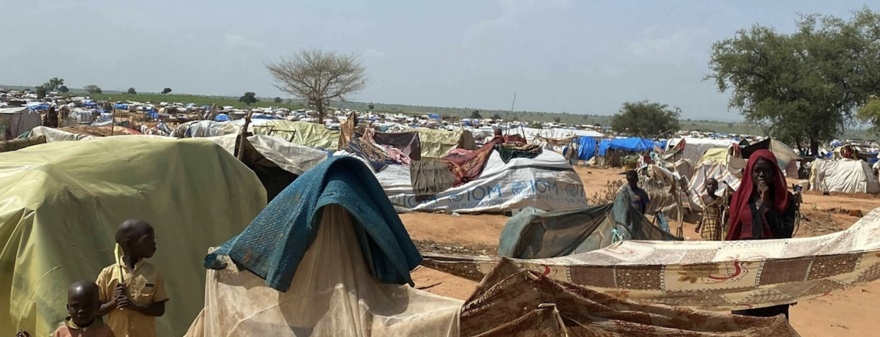A Sudanese journalist based in Darfur, Abdulrahman Al-Ajib, has faulted the Darfur Regional Government for manipulating relief aid by irregularly transporting, storing, and selling flour donated as aid in the markets.
Al-Ajib told Radio Tamazuj that there has been significant corruption in managing relief aid from Saudi Arabia which was donated by the King Salman Center.
“The donation comprised an estimated at 45,000 metric tons of flour that has not reached the intended beneficiaries,” he charged. “I made contacts with several government sources, citizens, and activists about the relief aid only to discover significant corruption accompanying those operations, including leakage of flour into markets.”
Al-Ajib also accused the executive director of Kutum locality in North Darfur of selling the local share of flour in markets.
According to him, the Commissioner for Humanitarian Aid disassociated himself from the corruption and theft of aid that occurred, placing responsibility on the Deputy Minister of Social Development, Jamal Al-Nil Abdullah, who chairs the High Committee for Emergencies and those with him on the committee, for the failures accompanying the aid, indicating its failure to reach its beneficiaries.
Previously, the executive director of El-Firdous Locality, Juma’a Haraz, accused the regional government of stockpiling relief materials until their expiration date, and relief distribution was based on political loyalty.
On the other hand, the Media Director at the Federal Ministry of Social Development, Mohammed Musa Dabbab, defended the government.
“The relief aid for the Darfur region did indeed reach the regional capital, El-Fashir, at the time when there were security disturbances in the other four Darfur states, and there were no safe routes,” he explained. “Therefore, the High Committee for Emergencies decided to store the materials in El-Fashir.” He added, “Before finding a solution for deportation, the four states (Nyala, El-Daien, Zalingei, and Geneina) came under the control of the Rapid Support Forces. After that, the security apparatuses refused to deport the aid to them. It was a sovereign decision from the state presidency, and no one can bypass presidential decisions.”
Musa added: “The government feared that if it began delivering these aids, the Rapid Support Forces would exploit the aid, after seizing it, for media propaganda.”
He acknowledged distributing the state’s flour shares in North Darfur due to the government’s fear of flour spoilage. However, relief aid was shipped to Nyala in July, and over 30 tons of medicine were sent to Sudanese refugee camps in Chad.
As for corruption and flour sales, Musa sees it as the responsibility of the state governments where corruption or sales occurred and says they should be held accountable.




